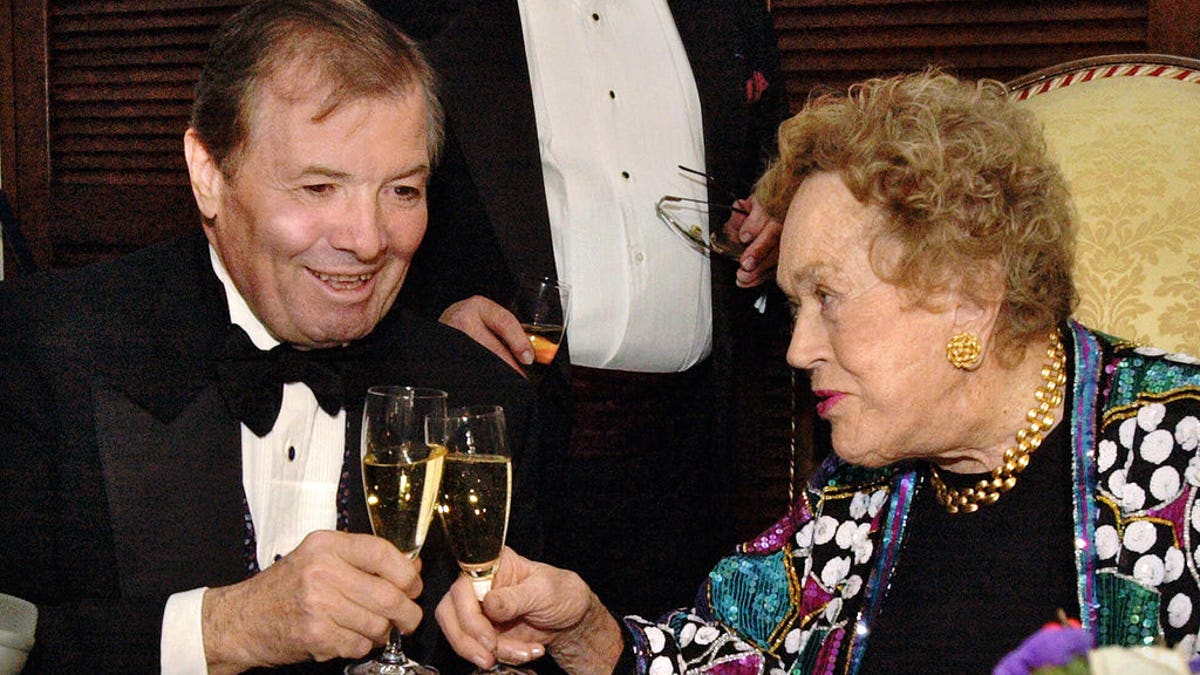
French chef Jacques Pepin, pictured with Julia Child in 2004, was one of the first chefs to appear in his own TV show.
Celebrity chefs today are just as likely to be known for their food as their brash personalities, messy public divorces or even spiky, gelled hair.
But one of the original culinary small screen scars, Jacques Pepin, comes from a simpler time—and he isn't happy about the state of modern programming when it comes to cooking.
In an essay penned for The Daily Meal, Pepin calls out the new wave of ‘so-called “reality” shows' for misrepresenting the industry.
These shows, writes Pepin “portray the restaurant kitchen in a chaotic and negative light, and I believe it is a disservice to our trade and to young people who want to go into this business. The worst offenders insult and humiliate their crew, cursing and swearing, with every other word a bleeped expletive.”
One of his biggest gripes is that in many shows, viewers don’t even get to see a dish actually being prepared, and come away with no knowledge of how to employ proper cooking techniques.
“Dishes appear from somewhere, and the tasting is only done by the dictator chef at the end of the show, and only in the context of disagreeing, conflicting, or contesting the taste, with the goal of mortifying his cooks, not helping them,” says the veteran kitchen superstar. “This approach is certainly not conducive to creating good-tasting dishes.”
Pepin, who along with Julia Child is considered one of the first modern TV chefs, rose to fame in the 1980s with simple stand-and-stir programs that showcased classic French culinary cooking school techniques.
Pépin co-starred in the PBS series “Julia and Jacques Cooking at Home” withChild in 1999. The show received a Daytime Emmy award in 2001.
But the godfather of the celebrity chefs appears distraught with the state of cooking media today for promoting “confrontation” and “bitter drama” among food workers. He even calls out Gordon Ramsay’s popular “Hell’s Kitchen” as one of the worst offenders.
“The cruel rivalry and conflict depicted in Hell’s Kitchen may be good for ratings, but it is unjust to dedicated cooks and unfair to the trade,” says Pepin, who contends that a sneak peek into the kitchens of Michelin-starred eateries like Chez Panisse or Alinea would show nothing more than well-organized, diligent workers just doing their jobs-- without screaming their heads off.
Yelling at sub-standard restaurateurs may not get you a Michelin star—but it does get you as much money as Beyonce. Still, Pepin isn’t impressed.
The chef concludes, “In my opinion, nothing good enough to eat can be concocted under such conditions. I’m going back to my mother’s leek and potato soup and apple galette.”